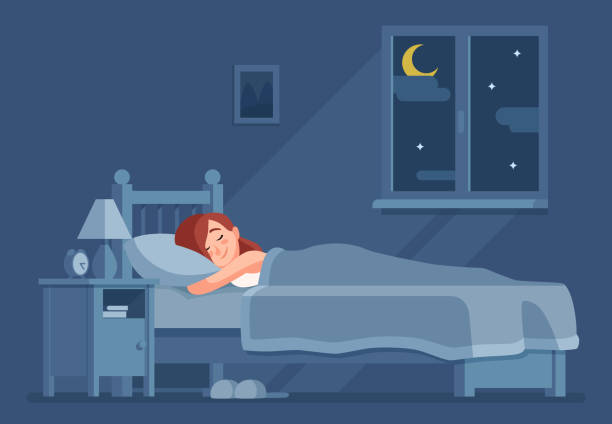How to Get Better Sleep
Person sleeping at night. Woman sleep in bed under duvet. Girl bedroom home interior, bedding sleeping dream relax cartoon vector concept
September 11, 2022
It’s September, which means you won’t be getting much sleep for the next nine months. With hours of homework, studying, extracurriculars, and other commitments, it can be difficult to get eight hours of sleep each night. Nevertheless, there is a way to not only improve your sleep quantity, but your sleep quality as well.
Don’t eat for at least an hour before you go to bed. Eating during this period of time can significantly affect the condition of your sleep. When you snack late at night or right before you go to bed, your body will work to digest the food throughout the night, which leaves your body drained, causing you to feel even more tired when you wake up. Nobody wants to feel more restless than they have to, so it’s important to remember not to eat before you go to bed.
Gradually begin to dim the lights leading up to the time you go to bed. Being in the presence of bright light, to put it simply, will trick both your mind and your eyes into staying awake. Instead of keeping your overhead light on, in addition to all the lamps throughout your room, use only one light at night, and dim it if possible. This will maintain your body’s clock, and save energy!
Lastly, and most importantly, don’t stay up late looking at your phone! Your phone’s artificial light stimulates activity in your eyes and mind and will wake you up. For the same reason, looking at your phone too much before going to bed can also be the cause of insubstantial sleep. You’ve probably heard this before, but that’s because it’s true and likely the reason you wake up feeling tired.
Getting enough sleep has numerous benefits, including the fact that it keeps your mind active and your body healthy. It’s of utmost importance to try and get good sleep as much as you can, especially during the school year. Following these tips for a better night’s sleep will help you make the most of the time you get to rest!

